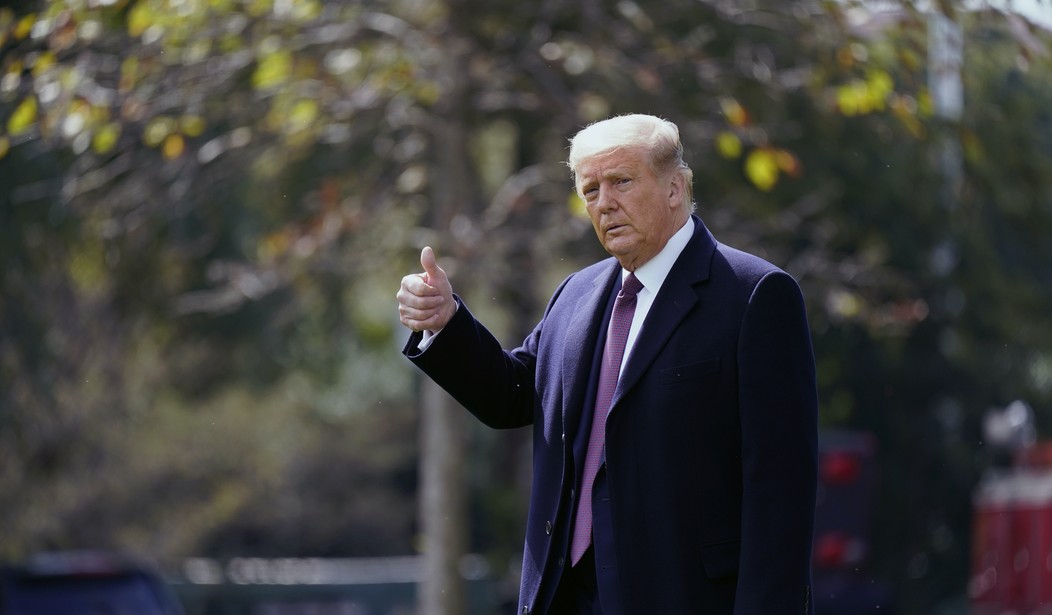Donald Trump and his wife Melania have tested positive for the coronavirus, eliciting hate, love, mockery, and support from high- and low-born alike.
Hu Xijin, the editor of the unofficial/official organ of the Chinese Communists the Global Times, encapsulates the feelings of Trump-haters the best.
“President Trump and the first lady have paid the price for his gamble to play down the COVID-19,” Hu wrote on Twitter. “The news shows the severity of the US’ pandemic situation. It will impose a negative impact on the image of Trump and the US, and may also negatively affect his reelection.”
But despite the Trump hate manifested by the “told ya so” tweets of many, the divide between support and opposition to Donald Trump remains sharp — and very close.
That’s why Trump’s diagnosis won’t move the needle on the campaign at all. People have already decided how they feel about Donald Trump. They’ve had four years of chaos, lies, exaggerations, a partisan impeachment, a pandemic, and the entire Democratic-media complex working overtime to remove him from office. Those who have tuned out the hysterical opposition to Trump have mostly stuck with him — and will continue to do so. Those who have embraced the Orange Man Bad narrative will continue to oppose him.
But won’t it affect the campaign at all? When you’re looking at five states that Trump won in 2016 by less than one percent of the vote, even a small movement toward the president or away from him could mean victory or defeat for either candidate.
What we’re really looking at is a net movement of the voters. Some are more likely to vote for Trump, others will be less likely. Still, others may move to the “undecided” column. With such a close election, that net movement is likely to be a wash. Neither candidate will get any advantage from the news.
The real problem for Trump is time. He has 34 days and he’s behind in some key states. Everyone agrees that Trump on the stump is a better candidate than Trump squeezed down to less than life-size on a phone or computer monitor. But while he’s in quarantine, the president will be reduced to campaigning from home.
Not only does the announcement have seismic implications for the president’s messaging, it will also have an impact on the logistics of his schedule just weeks before the Nov. 3 election. Trump had already canceled a rally in Florida on Friday, and the revelation of his positive result raised questions about his ability to hold rallies, fundraisers and participate in presidential debates scheduled later this month.
All of that presented an existential challenge to many of Trump’s central arguments in the campaign: That the nation was poised to climb out of the pandemic soon, that states were only closed down for political reasons – as an effort to make Trump look bad – and that Democratic nominee Joe Biden was being too cautious, “hiding” in his basement.
Then there’s the health of Trump to consider. Will it be a mild form of the disease? Trump is considered obese by CDC charts and has a common heart ailment. His age — 74 — must also be considered when treating the disease. Those complicating factors could make the president seriously ill, which may, indeed, move the needle decisively.
But for the moment, voters are still reacting to the debate as they digest what they saw or, more likely, what they heard on the news. Factoring Trump’s diagnosis into their calculations on whom to vote for will take a while. Any polls that come out tomorrow or in the next few days can be ignored. This is an event that will take time to work its way through the electorate before the overall picture becomes clearer.










Join the conversation as a VIP Member